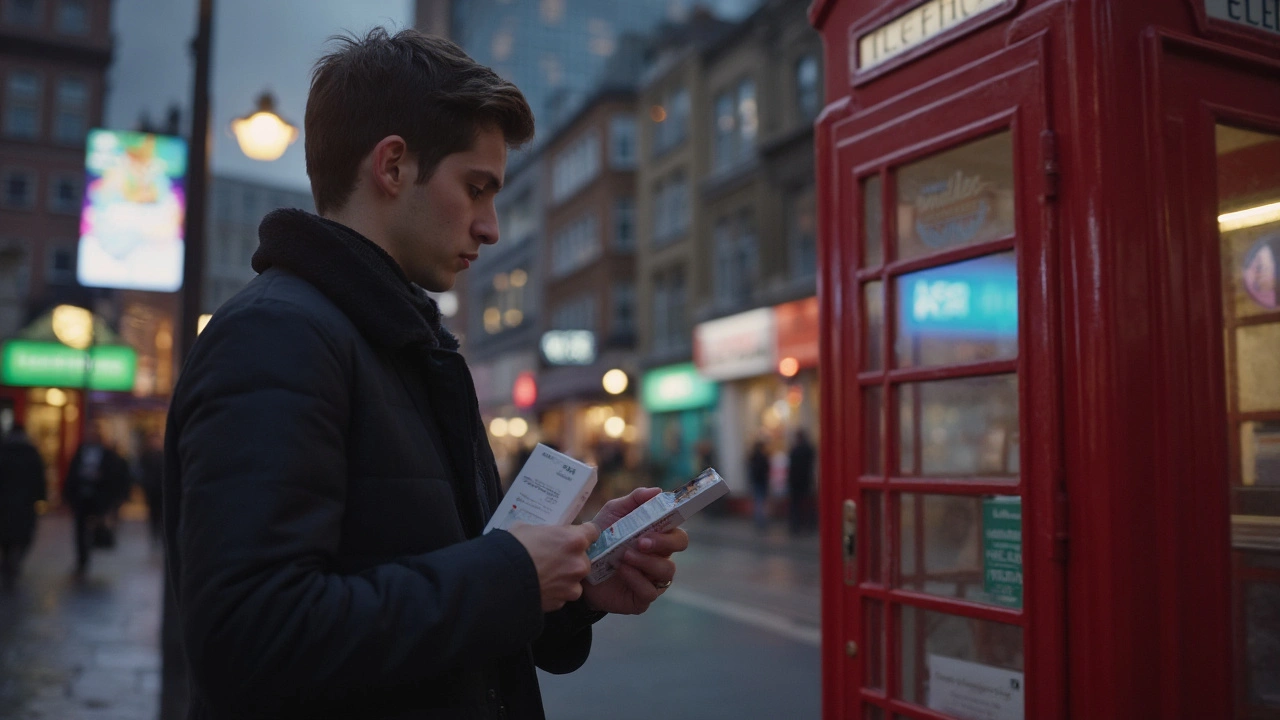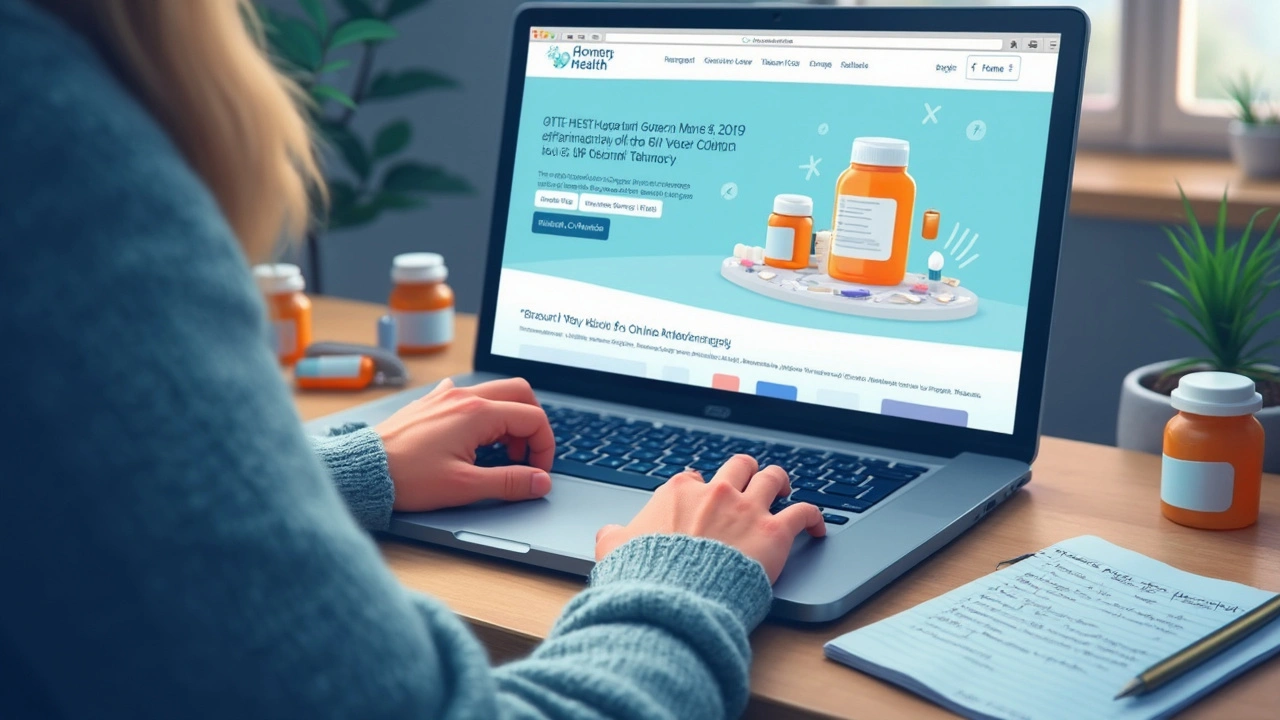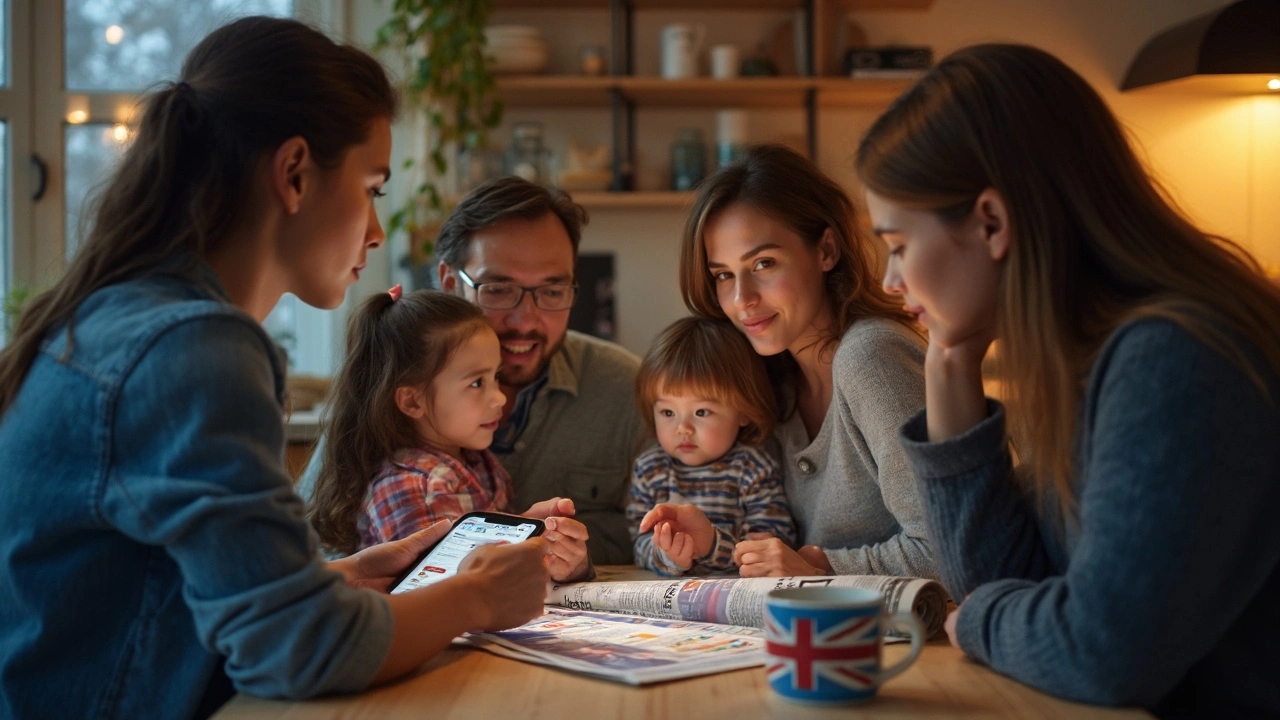Every day, thousands of people click 'buy now' on cheap drugs, hoping for easier access and lower prices. What most don't realize? Fake pills are everywhere, hiding behind slick websites and too-good-to-be-true deals. The World Health Organization flagged that one in ten medical products in low- and middle-income countries is either substandard or outright fake. And yes, bogus medicines are creeping into wealthier nations, especially through the web. This surge in online pharmacy sales is a gold mine for counterfeiters—the ultimate low-risk, high-reward crime. You’re not just risking wasted cash. With counterfeit meds, side effects are unpredictable, dosages can be wildly wrong, and toxic fillers sometimes sneak in. Would you gamble your health on a mystery powder?
Recognizing the Warning Signs: How to Spot a Risky Online Pharmacy
Most counterfeit drug sales begin with professional-looking websites. They may have sprawling images of smiling doctors, reassuring seals, and promises of overnight shipping. But if you want to keep yourself safe, you need to look beneath the surface. Here are the telltale red flags:
- No prescription required: Legal pharmacies always ask for a valid prescription when you’re buying prescription drugs. If a site skips this step—danger sign.
- Prices are way below market: If their price cuts look suspiciously deep (we’re talking 70-80% off), it’s probably not legit medication.
- Mystery or sketchy contact info: If there’s no real address, no phone number, or just a generic contact form, back away.
- Strange payment methods: Think twice if they push payments through cryptocurrency, gift cards, or untraceable methods rather than secure credit card processors.
- Absence of a licensed pharmacist: A safe online pharmacy will have actual licensed staff—and isn’t shy about letting you contact them with questions.
- Spammy emails and pop-ups: If aggressive marketing floods your inbox or the site bombards you with pop-ups, that’s rarely a trait of a legitimate pharmacy.
- Odd domain names and typos: Many counterfeit websites use weird URL variations (like .biz, .shop) and are riddled with spelling or grammar mistakes.
- Missing regulatory seals or fake accreditations: Double-check any pharmacy ‘badge’ displayed—counterfeiters copy logos from legitimate bodies like NABP or CIPA but don’t actually pass verification.
Spotting one red flag doesn’t always mean you’ve stumbled onto a fake site. But the more issues you see, the riskier it gets. If you spot several of these red flags together, it’s time to find a different source for your medication.
How to Verify if an Online Pharmacy is Real: Tools and Tactics That Work
With slick fakes out there, it’s not always easy to know who to trust. But luckily, there are solid resources to help you verify pharmacies before you hand over your money—or your health history.
- NABP Verified Websites: The National Association of Boards of Pharmacy runs a 'VIPPS' (Verified Internet Pharmacy Practice Sites) accreditation program. Any pharmacy with their stamp of approval has been thoroughly checked. You can look up any online site on safe.pharmacy for free.
- CIPA: The Canadian International Pharmacy Association keeps an up-to-date list of accredited online pharmacies serving American and Canadian customers. If your pharmacy isn’t listed on CIPA’s website, proceed with caution.
- FDA BeSafeRx: For U.S. shoppers, the FDA’s BeSafeRx campaign publishes official lists and gives advice on what to watch for—including a free search tool to check legitimacy.
- Check with your local Board of Pharmacy: Every state Board in the U.S. publishes lists of licensed pharmacies. If you’re not sure, just search “[your state] Board of Pharmacy” and follow their public records.
- WHO's Alert List: The World Health Organization publishes a running list of fake medicine alerts and risky sites, especially if you travel abroad or order from unfamiliar countries.
Remember, a little time spent checking proofs can save you weeks of medical misery. When in doubt, copy and paste the website’s name into Google along with “scam” or “reviews.” Scammers rarely go undetected for long. Also, genuine pharmacies openly share licensing credentials, phone numbers, and sometimes personal pharmacist bios. Transparency is a great sign.

What Happens If You Buy a Counterfeit Drug? Cold Data and Real Stories
Maybe you’re thinking, "Can a fake pill really do that much harm?" Let’s look at facts. According to Interpol’s annual Operation Pangea, law enforcement seized more than 25 million fake medical products in a single week in 2023—just online. According to a study by the Journal of Pharmaceutical Health Services Research, 65% of fake drugs found online had either no active ingredient or the wrong ingredient entirely.
Here’s a quick table to break down what’s at stake:
| Consequence | What Happens | Frequency Found in Counterfeits |
|---|---|---|
| No or too little active ingredient | Drug doesn’t work—dangerous if treating infections or heart conditions | ~42% of counterfeit samples |
| Wrong ingredient | Unexpected side effects, sometimes life-threatening allergic reactions | 23% |
| Contaminants (e.g. heavy metals, bacteria) | Serious toxicity, organ damage | 12% |
| Extra-high doses | Risk of overdose, acute poisoning | 19% |
Real stories are even scarier. In a 2022 case, dozens of New Yorkers wound up in the ER after buying ‘prescription painkillers’ online, only to discover they were loaded with fentanyl. Others have ordered “antibiotics” that turned out to be starch. Even if nobody dies, treatment delays can make medical issues much, much worse. The bottom line? You’re taking a gamble every time you skip safety checks.
Why Buying from Verified Sources Matters More Than Ever
Now that counterfeiters have gotten smarter, even experienced pharmacy shoppers sometimes get fooled. In today’s online marketplace, you’re often up against illegal networks with massive resources. But safe pharmacies still exist—and the trick is knowing how to spot them.
- Verified pharmacies protect your privacy: They encrypt payment and medical data, and won’t sell your information to third parties.
- The meds come from regulated sources: You get the right drug, at the correct strength, every single time.
- You have recourse if there’s a mistake: Licensed pharmacies accept returns, handle recalls, and have customer service staff who can talk through side effects or concerns.
- You skip all the nasty surprises: No mystery powders, no illegal imports, and a dramatically lower risk of health complications.
Trust is earned, not given. One little shortcut—say, skipping the prescription check—makes it easy for counterfeiters to slip you a fake. Better safe than sick.
Sometimes you just need a little help picking a trusted site. If you’re searching for safer ways to get the meds you need, have a look at this up-to-date rundown of safe RXConnected alternatives for 2025. Sticking with trusted sources means peace of mind.

Smart Steps for Safer Online Medication Shopping
Here’s how to stack the odds in your favor:
- Double-check site credentials before anything else. Do this for every new site even if someone recommends it to you.
- Always demand a prescription for prescription-only drugs. No exceptions.
- Search for reviews—real ones—beyond the pharmacy’s own website. Reddit, health forums, and watchdog sites like Trustpilot can help you spot trends.
- Stick to pharmacies that spell out privacy policies and give you actual customer support contact info.
- Compare drug prices on reliable comparison sites—if something is wildly cheaper than anywhere else, it’s a red flag.
- Don’t trust pharmacies that use encrypted messaging apps (like WhatsApp or Telegram) as their main payment or order channel.
- If your pills arrive looking or smelling different than you expect—consult your doctor or pharmacist before taking them.
- Save receipts and order confirmation emails until your prescription is verified and in your hands.
- If in doubt, ask a pharmacist. They’re trained to sniff out fakes and help keep you safe.
- Share this knowledge. Friends, family, parents—they might not know the risks until someone spells them out.
Remember, your health is worth more than a bargain. A little sleuthing protects you from shady dealers and dangerous medicines. Fake online pharmacies are good at what they do, but they’re no match for an informed buyer. Stay sharp, stick to safe pharmacy verification steps, and keep your medicine cabinet free from fakes.

Imogen Levermore
May 25, 2025 AT 07:41Chris Dockter
May 25, 2025 AT 19:56Gordon Oluoch
May 26, 2025 AT 06:16Tyler Wolfe
May 27, 2025 AT 05:00Neil Mason
May 27, 2025 AT 09:14Andrea Gracis
May 27, 2025 AT 16:39